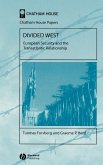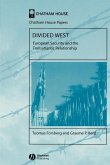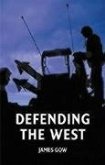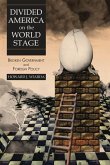Make no mistake, the normative authority of the United States of America lies in ruins. Such is the judgment of the most influential thinker in Europe today reflecting on the political repercussions of the war in Iraq. The decision to go to war in Iraq, without the explicit backing of a Security Council Resolution, opened up a deep fissure in the West which continues to divide erstwhile allies and to hinder the attempt to develop a coordinated response to the new threats posed by international terrorism. In this timely and important volume, Jürgen Habermas responds to the dramatic political events of the period since September 11, 2001, and maps out a way to move the political agenda forward, beyond the acrimonious debates that have pitched opponents of the war against the Bush Administration and its coalition of the willing. What is fundamentally at stake, argues Habermas, is the Kantian project of overcoming the state of nature between states through the constitutionalization of international law. Habermas develops a detailed multidimensional model of transnational and supranational governance inspired by Kantian cosmopolitanism, situates it in the context of the evolution of international law toward a cosmopolitan constitutional order during the nineteenth and twentieth centuries, and defends it against the new challenge posed by the hegemonic liberal vision underlying the aggressive unilateralism of the current US administration. The Divided West is a major intervention by one of the most highly regarded political thinkers of our time. It will be essential reading for students of sociology, politics, international relations, and international law, and it will be of great interest to anyone concerned with the current and future course of European and international politics.
Hinweis: Dieser Artikel kann nur an eine deutsche Lieferadresse ausgeliefert werden.
Hinweis: Dieser Artikel kann nur an eine deutsche Lieferadresse ausgeliefert werden.
"For anyone interested in contemporary intellectual effortsto imagine a more peaceful and equitable world order, TheDivided West is a must-read."
International Studies Review
"Ever since the end of the cold war, Habermas has beentrying to define an alternative vision of a new world order. Inthis collection, he presents that vision in its most accessible andpassionate form."
International Journal of Urban and RegionalResearch
"A useful introduction to Habermas's practical philosophyin the context of some of the most pressing issues of ourage."
Anthony J. Carroll, Heythrop Journal
"No-one articulates the 'European' ideal with greaterintellectual clarity, philosophical acumen and humanist fervourthan Jürgen Habermas. In this collection of essays andinterviews, provocatively entitled The Divided West,Habermas makes a very candid criticism of the current USpreoccupation with power."
S Parvez Manzoor, Muslim World Book Review
"This book is an indispensable guide to anyone seriouslyinterested in how to think about the complex question of terrorism.It exposes subtle and blatant biases that characterize muchcontemporary discussion of the subject and offers a judicious andclosely argued response to terrorism: ultimately the only realisticone."
Lord Bhikhu Parekh, University of Westminster
International Studies Review
"Ever since the end of the cold war, Habermas has beentrying to define an alternative vision of a new world order. Inthis collection, he presents that vision in its most accessible andpassionate form."
International Journal of Urban and RegionalResearch
"A useful introduction to Habermas's practical philosophyin the context of some of the most pressing issues of ourage."
Anthony J. Carroll, Heythrop Journal
"No-one articulates the 'European' ideal with greaterintellectual clarity, philosophical acumen and humanist fervourthan Jürgen Habermas. In this collection of essays andinterviews, provocatively entitled The Divided West,Habermas makes a very candid criticism of the current USpreoccupation with power."
S Parvez Manzoor, Muslim World Book Review
"This book is an indispensable guide to anyone seriouslyinterested in how to think about the complex question of terrorism.It exposes subtle and blatant biases that characterize muchcontemporary discussion of the subject and offers a judicious andclosely argued response to terrorism: ultimately the only realisticone."
Lord Bhikhu Parekh, University of Westminster








